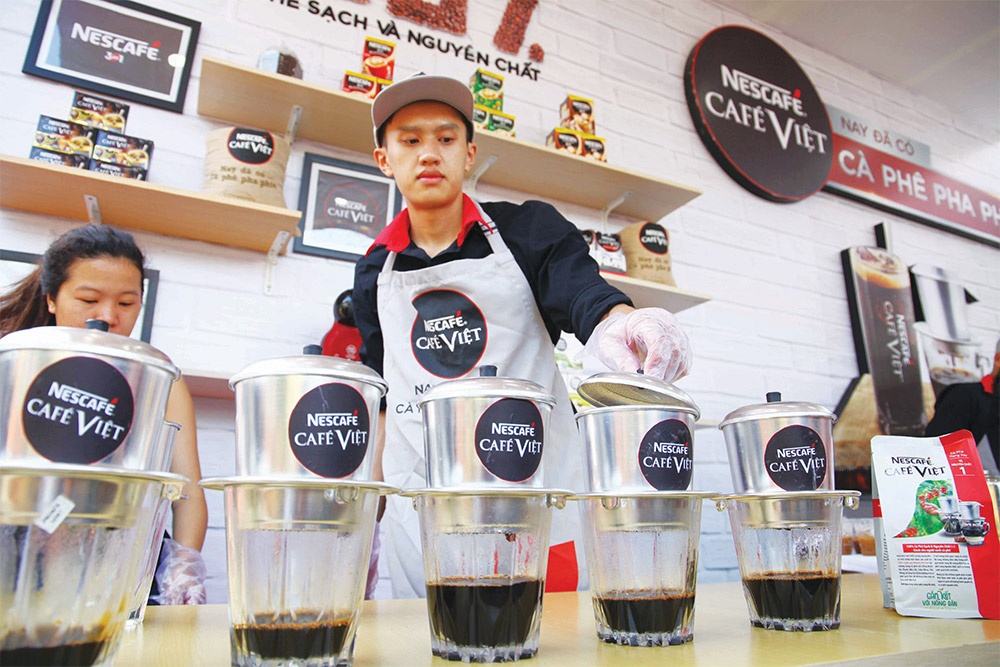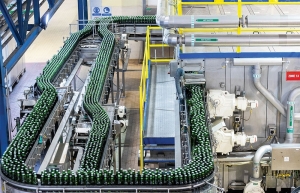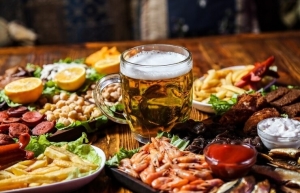F&B titans injecting new cash for facilities
Nestlé Vietnam last week announced an additional investment of $100 million in its processing capacity for high-quality coffee production lines at the Nestlé Tri An factory in the southern province of Dong Nai, bringing the total capital of the factory to nearly $500 million.
 |
| Nestlé Vietnam has made another cash injection for its production, photo Le Toan |
Binu Jacob, managing director of Nestlé Vietnam, said the project reflects Nestlé’s commitment to long-term investment in Vietnam.
“Once put into operation, the factory’s capacity will meet consumer demand in the local market and tap into the export potential, making Vietnam a high-value coffee supply centre for the world. At the same time, through this project, we also hope to generate more job opportunities and continue to expand long-term investment activities in Vietnam,” Jacob explained.
Nestlé Group has made investments of nearly $840 million through Nestlé Vietnam, which has four factories and two distribution centres. In Dong Nai, the company is running three factories. Among them, the products made at the Nestlé Tri An factory are exported to more than 29 countries around the world.
Earlier this month, TTC International Beer JSC also made a proposal to adjust the investment capital of its TTC International Beer factory in the central province of Quang Tri. Accordingly, the company will invest an additional $13.6 million to transform the brewery to produce other kinds of beverages. The additional investment raised the total for the project to $40.8 million. Under the proposal, the company will triple its capacity to 150 million litres per year, including beer, soft drinks, and mineral water. The expansion is slated to be completed and put into operation in the second quarter of 2025.
According to TTC International Beer JSC, the company has successfully introduced its products to some markets around the world. Its partners in Russia, Mongolia, Cuba, Qatar, and Malaysia, among others, have expressed interest in exporting the company’s products.
Meanwhile, PepsiCo is set to invest nearly $90 million in establishing a new production plant in the northern province of Ha Nam. The factory covers an 80,000-square metre land plot within Dong Van I Expansion Industrial Park and specialises in producing PepsiCo’s snack products. It aims to supply over 23,000 tonnes of PepsiCo snack brands a year to the Vietnamese and Cambodian markets.
The construction is scheduled to begin in early 2024 and be completed by the second half of 2025. PepsiCo also plans to develop high-tech agriculture and sustainable programmes in the locality to apply regenerative agricultural methods, including digital technology, to help save water and protect soil.
Suntory PepsiCo, a joint venture between PepsiCo Inc. and Suntory Holdings Limited, is also injecting $185 million to build a new factory in the Mekong Delta province of Long An, with an annual output of almost 800 million litres of products, including purified water, milk, and other beverages.
Elsewhere, South Korean soju maker HiteJinro plans to spend $100 million building a new plant in the northern province of Thai Binh, turning Vietnam into its first overseas manufacturing base.
“Vietnam is often viewed as a market with a large consumer base and a potential country for investment due to its consumption potential. However, key players in the food and beverage sector are steadily aiming towards the export market from Vietnam,” said Phong Quach, head of consulting at Ipsos Strategy3 Vietnam.
“Accordingly, players in Vietnam are still seeking three things for their export strategy, including the management of raw materials complying with importing countries’ requirements, modern technology in food processing, and a global network of buyers,” he said.
Ly Kim Chi, chairwoman of the Ho Chi Minh City Food Association, added, “Businesses in the food and beverages sector have maintained stable growth in the challenging environment last year, pinning their hope on the recovery in 2024. Indeed, they are gradually taking advantage of new-generation free trade agreements that Vietnam has signed. These deals have created a driving force for companies to boost exports as well as improve product quality to meet the strict requirements in overseas markets.”
 | F&B prioritising green development moves Dedicating more resources to research and development of greener products is being called essential for food and beverage businesses. |
 | A more sophisticated consumer base Over the last decade, Vietnam has experienced a remarkable surge in food and beverage consumption, which opens vast potential for many international and local brands to jump into this bandwagon. |
What the stars mean:
★ Poor ★ ★ Promising ★★★ Good ★★★★ Very good ★★★★★ Exceptional
Related Contents
Latest News
More News
- Vietnam, New Zealand seek level-up in ties (February 19, 2026 | 18:06)
- Untapped potential in relations with Indonesia (February 19, 2026 | 17:56)
- German strengths match Vietnamese aspirations (February 19, 2026 | 17:40)
- Kim Long Motor and AOJ Suzhou enter strategic partnership (February 16, 2026 | 13:27)
- Haiphong welcomes long-term Euro investment (February 16, 2026 | 11:31)
- VIFC in Ho Chi Minh City officially launches (February 12, 2026 | 09:00)
- Norfund invests $4 million in Vietnam plastics recycling (February 11, 2026 | 11:51)
- Marico buys 75 per cent of Vietnam skincare startup Skinetiq (February 10, 2026 | 14:44)
- SCIC general director meets with Oman Investment Authority (February 10, 2026 | 14:14)
- G42 and Vietnamese consortium to build national AI infrastructure (February 09, 2026 | 17:32)

 Tag:
Tag:












 Mobile Version
Mobile Version